
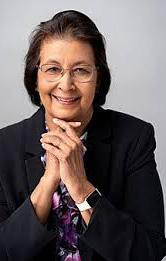
Jennifer Simons selected by voters to lead the South American country with oil potential
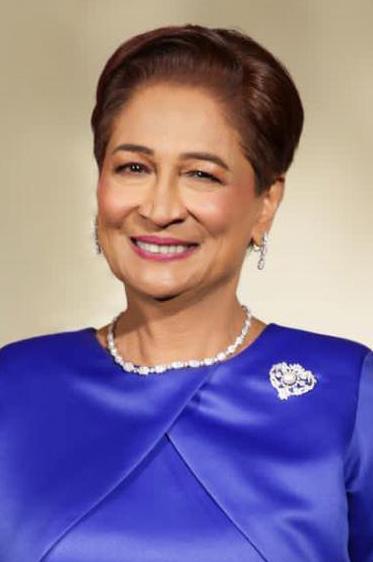
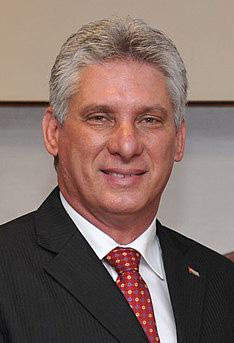
Diaz-Canel and others for human rights violations, says Secretary of State Marco Rubio
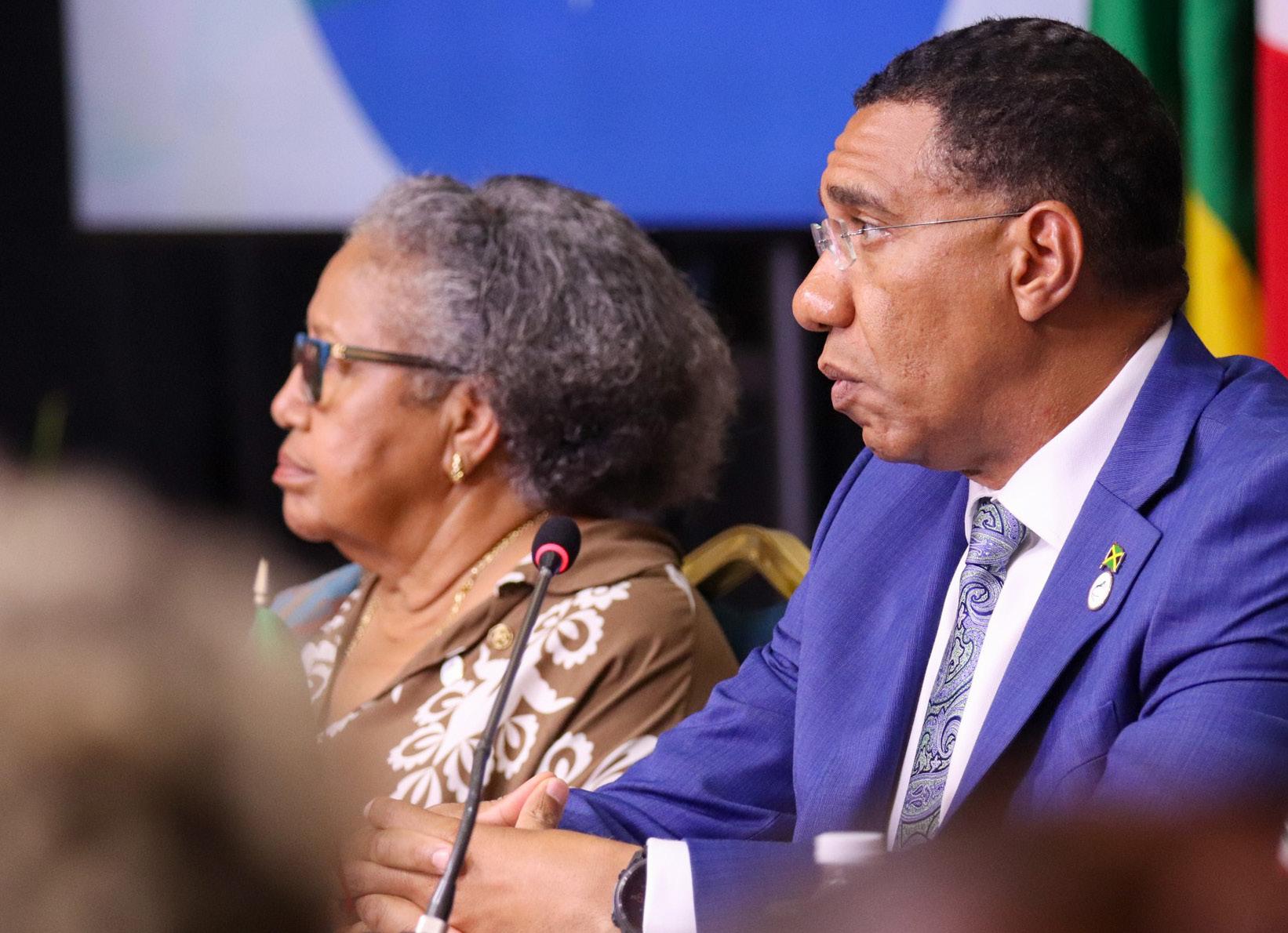
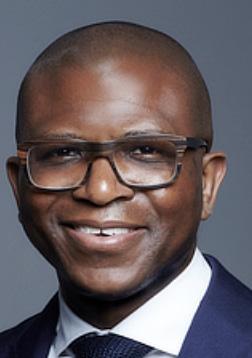
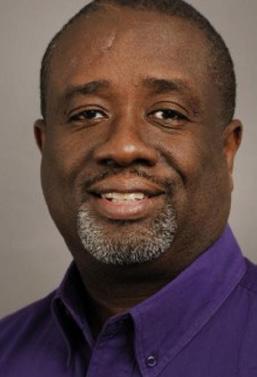





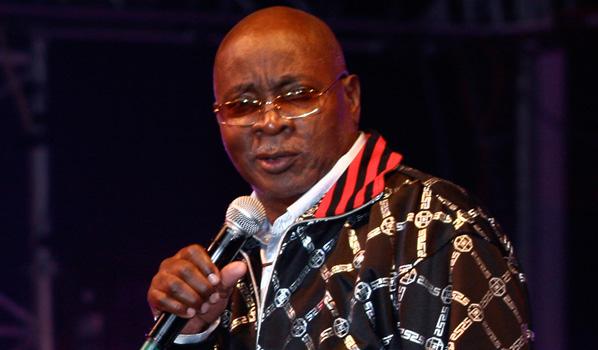



Jennifer Simons selected by voters to lead the South American country with oil potential


Diaz-Canel and others for human rights violations, says Secretary of State Marco Rubio









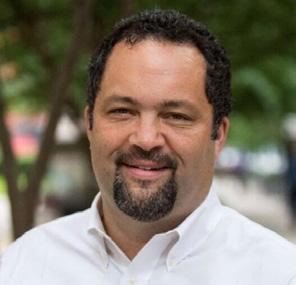
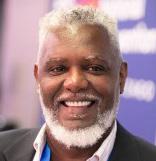
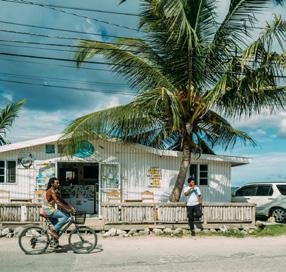

Texas Floods are a Climate Crisis Warning by Ben
- P 9
Medicaid Enrollees Targeted for Forced Farm Work Under Trump Immigration Crackdown by Stacy M. Brown - P 9
Jamaica – Tourism Earns Record US$2.4 Billion in 2025 So Far - P 18
Fraser-Pryce Among Ten Athletes to Watch at World Athletics Championships Tokyo 25- P 20

Sudan: Humanitarian needs deepen amid rising hostilities and heavy rains
Nearly 27 months have passed since fighting broke out between the Sudanese Armed Forces (SAF) and a former ally, the paramilitary Rapid Security Forces (RSF), creating an unprecedented humanitarian crisis.
The UN voiced grave alarm over escalating hostilities in El Fasher, the besieged capital of North Darfur state.
Large numbers of RSF fighters reportedly entered the city on Friday for the first time since the siege began over a year ago.
Local sources report that recent fierce fighting, particularly in the southwest and east of El Fasher, has led to civilian casualties.
“The situation remains highly volatile and unpredictable, with a serious risk of renewed violence, as well as further displacement and disruption of humanitarian operations –which are already under severe strain,” OCHA said.
Meanwhile, in North Kordofan State, growing insecurity forced 3,400 people to flee their homes over the weekend, according to the UN International Organization for Migration (IOM).
Local reports indicate that at least 18 civilians were killed, and homes were burned in several villages.
International Criminal Court: War crimes, systematic sexual violence ongoing in Darfur
Deputy Prosecutor Nazhat Shameem Khan told ambassadors in the UN Security Council that the ICC has “reasonable grounds to believe” that both war crimes and crimes against humanity are being committed in region, where a deepening conflict between the Sudanese Armed Forces and the Rapid Support Forces (RSF) has plunged the region into a humanitarian disaster.
Among the most disturbing patterns, she said, is the targeted use of sexual violence, including rape, abduction, and gender-based assaults – a campaign often directed at women and girls from specific ethnic communities.
“There is an inescapable pattern of offending, targeting gender and ethnicity through rape and sexual violence,” Ms. Khan said, stressing that such crimes must be translated into evidence for the Court and the world to hear.
She detailed ongoing efforts by the ICC’s Darfur Unified Team to document the atrocities, including through repeated field missions to refugee camps in Chad, the collection of over 7,000 items of evidence and enhanced cooperation with civil society and victims’ groups.
Ms. Khan also emphasized a renewed focus on gender crimes, supported by the Court’s dedicated gender unit, and called on all partners to work more closely to “ensure there is no gap in our efforts to hold perpetrators accountable.”
Meanwhile, the humanitarian situation worsens.
According to the UN Office for the Coordination of Humanitarian Affairs (OCHA), aid convoys are being targeted, hospitals bombed, and food and water deliberately withheld.
Security Council renews UN’s Haiti mission amid spiraling crises
By adopting resolution 2785, the Council renewed the authorization of the UN Integrated Office in Haiti (BINUH), reaffirming support for a Haitian-led solution to the island nation’s overlapping crises. The decision comes as armed gangs maintain their grip on most of the capital, Port-au-Prince, with over 1.3 million people displaced and more than 4,000 killed in the first half of 2025 alone, according to UN figures.
Conditions have deteriorated dramatically amid growing food insecurity and the erosion of public institutions. Of particular concern is the safety of women and girls, with a sharp rise in reports of sexual violence since the start of the year – including rape, gang rape, and sexual enslavement.
The Security Council also “expressed its intention to consider, without delay” the recommendations by the Secretary-General on possible future roles for the UN in sustaining security and stability in Haiti. In February, António Guterres presented the Council with a range of options.
Gaza: 875 people now confirmed dead trying to source food in recent weeks
“As of 13 July, we have recorded 875 people killed in Gaza while trying to get food; 674 of them were killed in the vicinity of GHF sites,” said Thameen Al-Kheetan, OHCHR spokesperson.
The remaining 201 victims were killed while seeking food “on the routes of aid convoys or near aid convoys” run by the UN or UN-partners still operating in the war-shattered enclave, Mr. Al-Kheetan told journalists in Geneva.
Killings linked to the controversial US and Israeli-backed aid hubs began shortly after they started operating in southern Gaza on 27 May, bypassing the UN and other established NGOs.
The latest deadly incident happened at around 9am on Monday 14 July, when reports indicated that the Israeli military shelled and fired towards Palestinians seeking food at the GHF site in As Shakoush area, northwestern Rafah.
According to OHCHR, two Palestinians were killed and at least nine others were injured. Some of the casualties were transported to the International Committee of the Red Cross (ICRC) hospital in Rafah. On Saturday medics there received more than 130 patients, the “overwhelming majority” suffering from gunshot wounds and “all responsive individuals” reporting they were attempting to access food distribution sites.
The UN agency for Palestinian refugees, UNRWA, expressed deep concerns about the continuing killing of civilians trying to access food, while deadly malnutrition spreads among children.
“Our teams on the ground - UNRWA teams and other United Nations teamshave spoken to survivors of these killings, these starving children included, who were shot at...
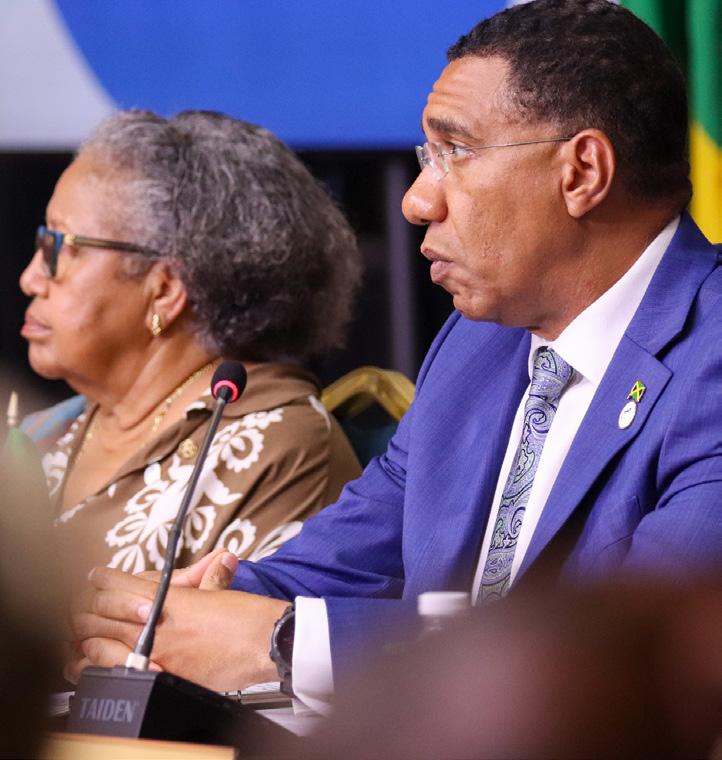
Caribbean leaders have pledged to strengthen regional cooperation in the fight against gang violence and crime, as they reaffirmed their support for Haiti, a nation the United Nations says remains “paralyzed” by gang control.
Newly appointed CARICOM Chair and Jamaican Prime Minister Andrew Holness announced that regional security would be a “matter of great priority” during his tenure. Speaking at the opening of the 49th Regular CARICOM Heads of Government Meeting in Montego Bay, Jamaica, Holness stressed the urgency of coordinated action, particularly in light of Haiti’s deteriorating security situation.
Holness also expressed concern about the
sluggish international response to Haiti’s crisis, declaring, “We must dismantle the influence of gangs in our communities, disrupt their finances... I am on record as saying that we need to launch a war on gangs of a similar magnitude and nature to the ‘war on terror.’”
Antigua and Barbuda’s Prime Minister Gaston Browne described crime and security as “one of the most significant existential threats facing the region.” He emphasized the need for collaboration, warning that transnational crime networks are becoming increasingly sophisticated.
“The criminals are getting far more advanced. It is important for us to conjoin our efforts across CARICOM to effectively combat this,” Browne said.
St. Kitts and Nevis Prime Minister Terrance Drew also welcomed a collective regional approach. “Security remains a concern on multiple levels, with Haiti being the most affected. A coordinated response from all member states is critical,” Drew stated. Tragically, as the conference was underway, Haiti’s iconic Hotel Oloffson — once a symbol of the nation’s cultural pride — was destroyed by gang-related arson in Port-auPrince. The hotel had hosted world leaders, artists, and celebrities, including Mick Jagger and various Haitian presidents.
According to the UN, over 4,000 people have been killed in Haiti since January — a 24%
increase over the same period last year. Laurent Saint-Cyr, a member of Haiti’s Transitional Presidential Council, addressed the summit and urged CARICOM nations to step up their support.
“Haiti today needs the region to speak with one voice in defense of security, peace, and sustainable development,” he said. He also called for intensified advocacy to curb the illicit arms and drug trades that fuel violence in the country.
Holness proposed the creation of a regional justice and security framework, aimed at delivering a strong, unified response to organized crime throughout the Caribbean.
Outgoing CARICOM Chair and Prime Minister of Barbados, Mia Mottley, focused on the role of U.S. gun trafficking in fueling regional violence.
“Regrettably, I’ve said over and over — we pay a high price for the Second Amendment rights of U.S. citizens,” Mottley noted, criticizing the steady flow of illegal firearms into the Caribbean.
In 2024, New York Attorney General Letitia James announced legislation targeting gun trafficking to the region. Jamaican officials estimated that up to 200 firearms are trafficked into the country monthly, directly contributing to violence and aiding drug trafficking networks.
Despite these challenges, Jamaica has reported a more than 40% drop in murders during
the first five months of 2025, compared to the same period in 2024. Officials credit this success to a multibillion-dollar investment in national security and the integration of advanced crime-fighting technology. Holness presented some of Jamaica’s tech-driven policing strategies at the CARICOM meeting, showcasing how surveillance, analytics, and rapid-response systems have improved law enforcement efficiency.
Mottley also reiterated the importance of adopting the Caribbean Court of Justice (CCJ) as the region’s final appellate court, highlighting the swearing-in of its new president, Jamaican jurist Winston Anderson, during the summit.
The CCJ currently serves as the final court of appeal for Barbados, Belize, Guyana, Dominica, and St. Lucia. However, many CARICOM nations still rely on the UK-based Privy Council.
“We are aware that some countries require referendums,” Mottley said, encouraging public education efforts to build support for the regional court system.
With Haiti’s crisis deepening and regional crime networks growing more advanced, CARICOM leaders are signaling a decisive shift toward shared responsibility, strategic cooperation, and sustained action.
“This is not just about one country,” Holness said. “It’s about safeguarding the future of the entire Caribbean.”
Suriname has made history with the election of Jennifer Simons as its first female president, following a decisive vote by the National Assembly on Sunday. The former parliamentary speaker and physician now steps into leadership at a critical time, as the country prepares for a predicted oil boom expected to reshape its economy. Simons, 71, was elected through Suriname’s indirect system, where the National Assembly chooses the president after general elections. Her appointment follows a tightly contested May 25 parliamentary election that saw her opposition National Democratic Party (NDP) secure 18 seats, narrowly edging out incumbent President Chan Santokhi’s Progressive Reform Party (VHP), which won 17 seats. Smaller parties won the remaining 16 seats, leading to a six-party coalition deal that cleared the way for Simons’ presidency.
“I come into this office to serve, and I will use all my knowledge, strength, and insight to make our wealth available to all of our people,” Simons said in a brief but emotional address to lawmakers, who greeted her election with resounding ap-
plause. She pledged to focus on youth development and on communities that have historically lacked access to opportunity.
“I am very aware of the responsibility now placed on our shoulders, a responsibility compounded for me by the fact that I am the first woman to hold this office,” she added. “I do not need many words. My thanks—and we will get to work.”
Her victory marks a significant political shift for Suriname, a South American nation of just over 600,000 people that gained independence from the Netherlands in 1975. Simons’ ascent to the presidency comes as Suriname stands on the cusp of an energy windfall, with its first major offshore oil project, led by TotalEnergies, expected to begin production in 2028. Known as the Gran Morgu project, the reserves have the potential to position Suriname alongside neighboring Guyana, whose economy expanded by more than 43 percent last year due to similar developments.
Despite the looming oil boom, the 2025 campaign was notably quiet on policy details concerning the expected revenues or

their management. Simons, however, has committed herself to inclusive development and equitable distribution of future wealth.
Outgoing President Chan Santokhi, 66, a former police commissioner who led the country since 2020, acknowledged his shortcomings in office and offered congratulations to his successor. “I take responsibility for my failings and hope to be remembered for my commitment,” he said,
pledging to continue serving in parliament after leaving the presidency.
Simons is a long-standing figure in Surinamese politics. She served as Speaker of the National Assembly for a decade until 2020 and secured the second-highest number of votes in the recent election, with over 41,700 ballots cast in her favor. Her vice president will be Gregory Rusland, leader of the National Party of Suriname (NPS), as part of the coalition agreement.
She now heads the NDP, the party founded by the late former President Desi Bouterse, who ruled Suriname for much of its post-independence era. Bouterse died a fugitive in 2024, after his conviction for the 1982 executions of 15 political opponents was upheld. He passed away on Christmas Eve at the age of 79, in an undisclosed location.
Simons’ inauguration is set for July 16, 2025. Her presidency is expected to usher in a new era of leadership and transformation for Suriname, with hopes high for responsible governance, economic reform, and greater inclusivity in the years ahead.
Nearly 5,000 people have been killed in Haiti since October 2024, with hundreds of thousands displaced amid a dramatic surge in gang violence—especially in and around the capital, Port-au-Prince—according to a new report released Friday by the United Nations Office of the High Commissioner for Human Rights (OHCHR).
The ongoing violence is deepening Haiti’s humanitarian crisis, further destabilizing the country and raising alarm over potential spillover effects across the wider Caribbean region.
“Violence increased sharply in recent months,” the OHCHR report noted.
Ulrika Richardson, the U.N. Resident and Humanitarian Coordinator in Haiti, added in a press release, “Human rights abuses outside Port-au-Prince are intensifying in areas of the country where the presence of the State is extremely limited. The international community must strengthen its support to the authorities.”
Between October 2024 and June 2025,
4,864 people have been killed amid worsening gang violence nationwide, with more than 1,000 of those deaths occurring in Port-au-Prince and its surrounding areas.
Armed gangs have steadily expanded their control across Haiti, overwhelming national security forces and paralyzing the operations of international aid organizations. The resulting chaos has forced tens of thousands of people to flee their homes. The healthcare system is also crumbling under the pressure. Several hospitals—including the prominent University Hospital of Mirebalais—have closed due to security concerns. According to U.N. estimates, fewer than 25 percent of health facilities around Port-au-Prince remain operational.
The U.N. report warns that unchecked gang violence not only threatens to collapse Haiti’s internal stability but also risks destabilizing the broader Caribbean region.
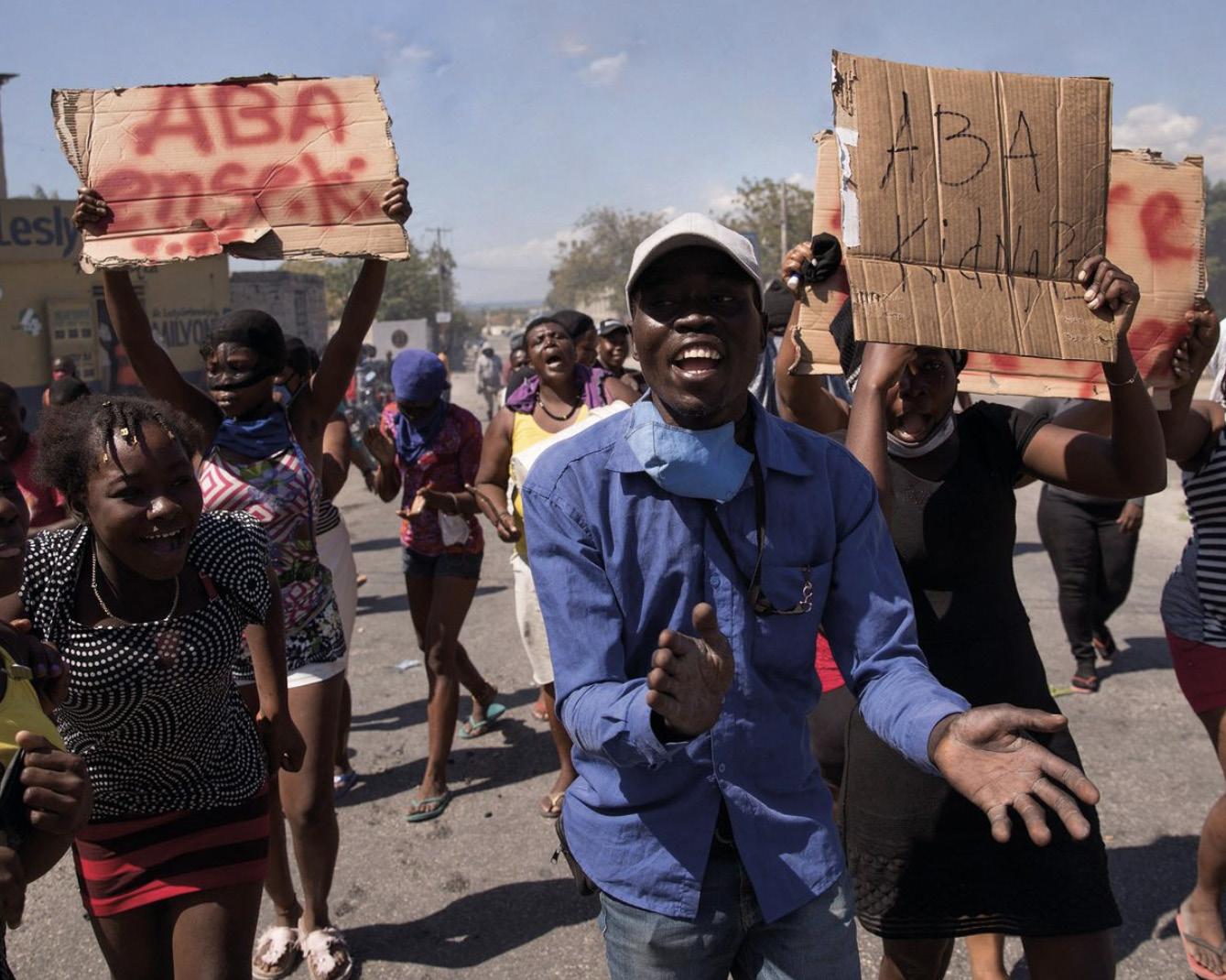
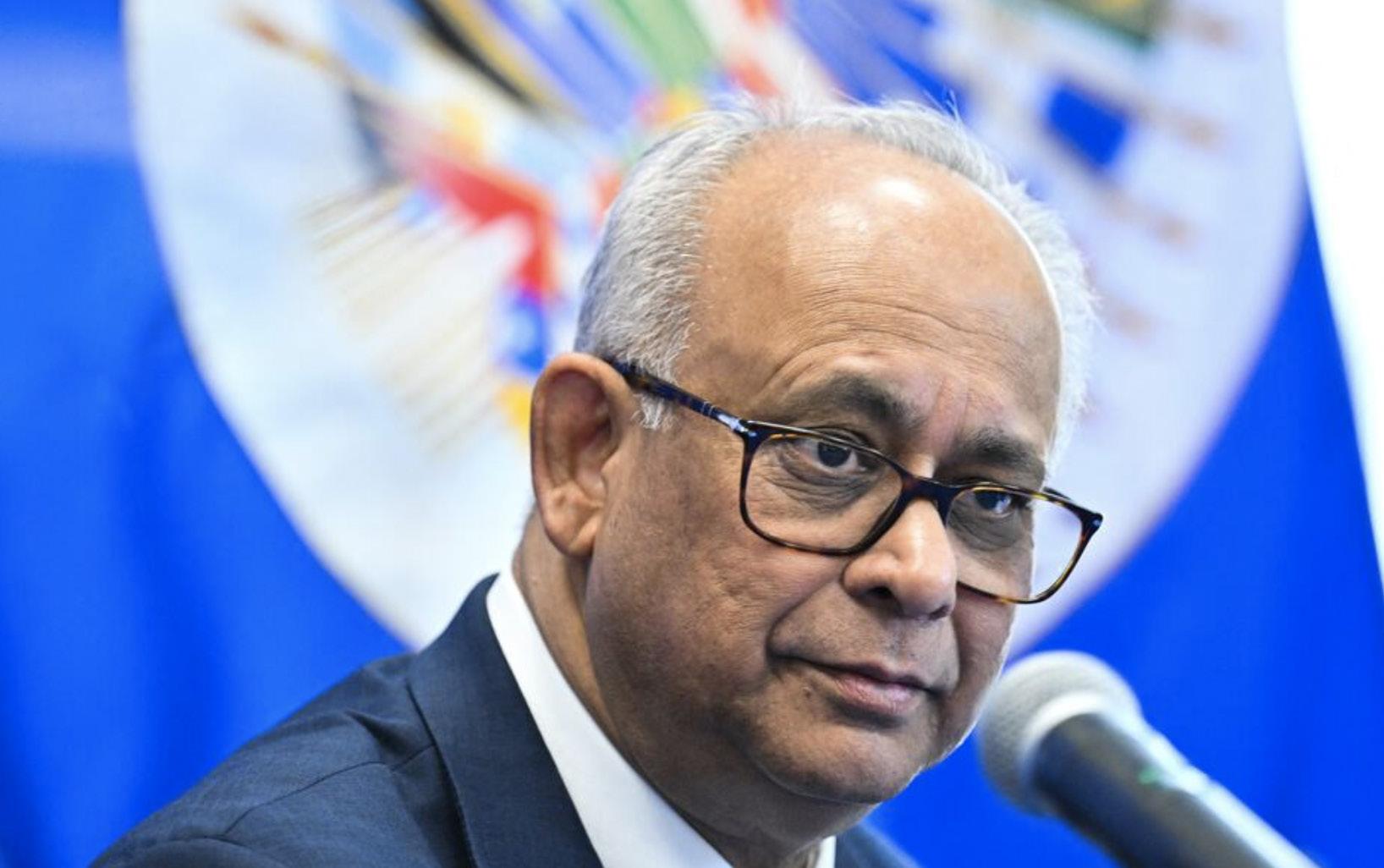
Finding lasting solutions to Haiti’s deepening political, security, and governance crises is a top priority for the Organization of American States (OAS) Secretary General, Ambassador Albert Ramdin, during his 2025–2030 tenure. “I have made Haiti a priority, and we are working very hard on Haiti currently. That is an effort that goes to the heart of the OAS, in terms of its core principles—about democracy, human rights, security, and development. And in Haiti, regretfully, all these issues are challenged at the moment, in the absence of a legitimate government,” he told reporters in an interview last week.
Forced migration from Haiti to near
by Caribbean nations like Jamaica and The Bahamas underscores the regional impact of the crisis. Ramdin reiterated his commitment to re-establishing the ‘Group of Friends of Haiti’ within the OAS and pledged to work closely with CARICOM and other international stakeholders. “I had good conversations in Jamaica about Haiti with the CARICOM leaders, with the Honorable Prime Minister Andrew Holness. And I want to make sure that we are clear about it,” said Ramdin, who attended the CARICOM Heads of Government Meeting in Montego Bay, St. James, last week.
He praised CARICOM for its leadership
and efforts in facilitating a governance process in Haiti, particularly through the establishment of the Transitional Presidential Council. “CARICOM has done great work in facilitating a process of governance by bringing together stakeholders to form the Transitional Presidential Council as a form of governance in absence of elections of a parliament and a cabinet government. I know that we need to work towards that end. But I salute CARICOM’s efforts—the Eminent Persons Group, the CARICOM chairpersons of Guyana and Suriname and also Barbados and now Jamaica,” he said.
The OAS, he added, will align its efforts with CARICOM’s framework and contribute to a broader, long-term strategy under a five-pillar ‘Haitian Road Map’ developed in consultation with Haitian authorities. The first critical focus is restoring security, especially ensuring access to vulnerable communities. “We need better security in Haiti. We need access roads to people who are in need of assistance to be free. We need the ports secure. And so security in different manifestations need to be addressed. Security and humanitarian assistance are to be provided, but they need to be well organised,” he explained. Ramdin said the plan is in its final stages and will soon be presented to Haitian authorities, the United Nations, CARICOM, and other stakeholders. “We want to showcase how much is already being done
in terms of assisting Haiti,” he added. The OAS is also working on citizen identification initiatives to support future elections and ensure the integrity of democratic processes. Coordination meetings with CARICOM and the United Nations are expected by the end of the month to harmonize efforts and prevent duplication. In addition to the OAS, other regional and international agencies—including the Inter-American Development Bank, the Pan American Health Organization, and the Inter-American Institute for Cooperation on Agriculture—are also involved in Haiti’s recovery. Ramdin stressed the need to go beyond basic humanitarian relief, emphasizing the importance of education, healthcare, and getting children back into classrooms.
“We need to get the political stakeholders which have been mobilized by CARICOM to develop a forward-looking agenda for Haiti, in terms of political and constitutional reform, as well as economic rebuilding. Key issues on health and education and security should lead us to elections,” he said.
Despite its unique set of challenges, Haiti shares many of the same issues facing other Caribbean nations, including climate change, debt burdens, migration pressures, and underdeveloped education systems. These common concerns, Ramdin said, require a unified and sustained regional response.
PORT OF SPAIN (CMC): The founding chairman of CrimeStoppers International for the entire Caribbean region, attorney, Martin Anthony George, has been granted TT$150,000 (One TT dollar=US$0.16 cents) bail after he appeared in court on Wednesday on sexual related charges.
George, 58, who is also the chairman and founding director of the Tobago Business Chamber, appeared before High Court Master, Indira Chinebas, charged with grievous sexual assault and indecent assault.
According to the charge, George is alleged to have committed the sexual offences on March 22, at his law firm in Port of Spain.
The chairman of the Police Service Commission (PSC) Appeals Tribunal, was arrested on July 8 at his Port of Spain office by detectives assigned to the Port of Spain Criminal Investigations Department.
The victim, a young attorney, alleged she was assaulted at the Port of Spain offices of Martin George and Co and when he appeared in court was ordered not to have any contact with the victim, “directly or
indirectly” and to stay 500 metres away from her at all times.
The matter was adjourned to October 7, for a status hearing.
George, who previously served as a three-time member of the PSC, vice president of the Tobago Lawyers Association and vice president of the Tobago Division of the Chamber of Industry and Commerce, is being represented by former attorney general, Ramesh Lawrence Maharaj, SC, and John Health, SC.

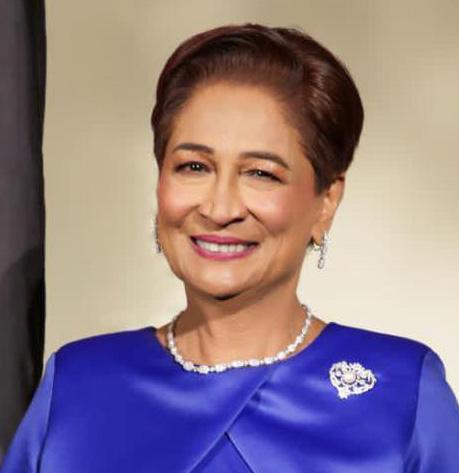
A new law will be brought before the Trinidad and Tobago Parliament to raise the legal age for gambling and marijuana use to 25 and increase the legal drinking age to 21.
Prime Minister Kamla Persad-Bissessar also announced that her government is reviewing and planning to amend the country’s tax laws regarding pensions. She argued that individuals who reach the age of 60 and have contributed to the pension system for decades should no longer be taxed on their retirement benefits.
The announcements came during the United National Congress (UNC) Monday Report in Penal—the first in a series of planned public meetings. It also marked Persad-Bissessar’s first address to UNC supporters since the party’s victory in the April 28 general election.
Outlining upcoming legislation and policy changes, including plans for Budget 2026 and judiciary reform, Persad-Bissessar also confirmed her intention to seek re-election as UNC leader. She emphasized that true progress must be felt in citizens’ daily lives and finances.
“We’ll make it happen,” she declared. “Progress will take some time, require considerable effort, and involve making some tough decisions to level the playing field. But that’s what’s needed. You don’t want the next five years to be as terrible as the past ten.”
Among the proposals reiterated from her election campaign was the plan to raise the legal age to 25 for marijuana use and gambling, and 21 for alcohol consumption. During the campaign, she frequently highlighted the harmful effects of marijuana on youth, along with the damage gambling addiction and alcoholism have caused families and communities.
On pension reform, Persad-Bissessar stated:
“I believe that once a person reaches 60 and has been contributing to the pension system for decades, they should no longer be taxed on their retirement benefits. This ongoing tax diminishes the value of a pension, which is meant to support retirees in their later years, and feels like double taxation—paying taxes both during working years and in retirement.”
She added, “These taxes strain the finances of seniors, especially those living on fixed or limited incomes, and can be a significant source of frustration. My government will review and amend the tax laws regarding pensions to reflect fairness and recognition of lifelong contributions. Exempting pension income from taxes after age 60 is a fair policy that honors the service and sacrifice of retirees, while also strengthening social support for the elderly. This ensures that those who have given so much are not unduly burdened in their golden years.”

The United States government recently announced that it is sanctioning Cuban President Miguel Díaz-Canel and several other top officials for human rights violations, and imposing visa restrictions in connection with the anniversary of the largest anti-government protests Cuba has seen in decades.
U.S. Secretary of State Marco Rubio stated on the social media platform X that the State Department will also apply visa restrictions to Cuban judicial and prison officials “responsible for, or complicit in, the unjust detention and torture of the July 2021 protesters.”
The protests, which an opposition group did not lead, erupted on July 11 and 12, 2021, as widespread frustration mounted over Cuba’s worsening economic crisis.
“The U.S. will continue to stand for the human rights and fundamental freedoms of the people of Cuba and make clear no illegitimate, dictatorial regimes are welcome
in our hemisphere,” Rubio said. In addition to President Díaz-Canel, the sanctions target Cuban Defense Minister Álvaro López Miera and Interior Minister Lázaro Álvarez Casas. The Trump administration has generally taken a harder stance toward Cuba’s government than the Biden administration, but this move signals continued bipartisan concern in Washington over Cuba’s human rights record.
Shortly after the announcement, Johana Tablada, deputy director of the U.S. division in the Cuban Foreign Ministry, sharply criticized Rubio, calling him a “defender of genocide, prisons and mass deportations.”
The 2021 protests were sparked by repeated power outages in Havana and other cities. While largely peaceful, some demonstrations ended in vandalism and confrontations. One person died during the unrest. Groups supporting the govern-
ment responded alongside authorities to suppress the protests. Human rights organizations estimated that more than 1,000 people were arrested, although the Cuban government did not release official figures. At the time, the Cuban government attributed the protests to a long-running U.S. media campaign and the broader impact of decades-long U.S. sanctions.
In 2022, Cuban prosecutors reported that about 790 individuals were investigated for protest-related offenses, including public disorder, sabotage, and vandalism. According to the advocacy group 11J— named after the date of the demonstrations—there were still 554 people serving sentences linked to the protests as of late last year. However, some were granted conditional release in January following an appeal from Pope Francis.
The sanctions add further strain to already tense U.S.-Cuba relations and come amid renewed international scrutiny of the
Cuban government’s response to dissent and civil unrest.
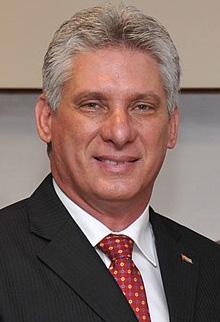
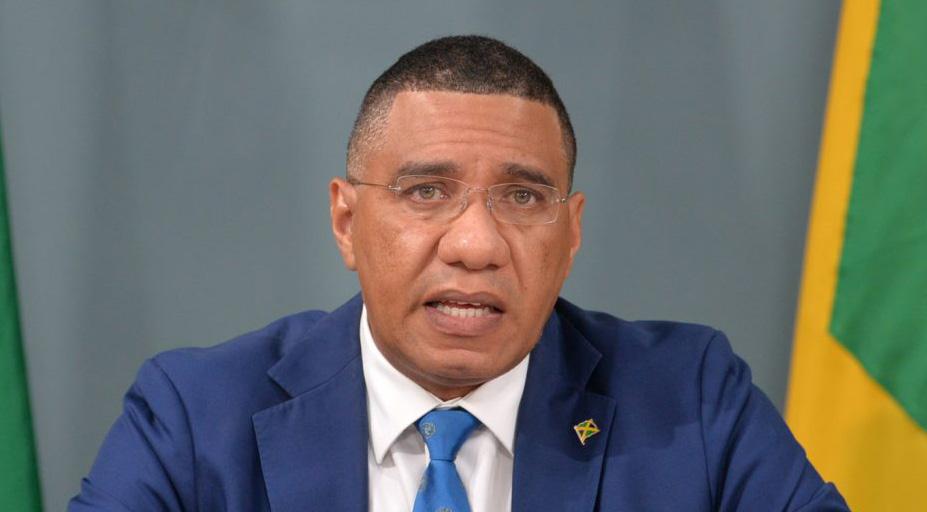
Jamaica has been officially removed from the European Union’s list of high-risk third countries for anti-money laundering and counter-terrorism financing (AML/CFT), a move hailed by Prime Minister Andrew Holness as a significant achievement for the country and the wider Caribbean region.
The European Parliament endorsed a recommendation from the European Commission to delist both Jamaica and Barbados, following Jamaica’s removal from the Financial Action Task Force (FATF) grey list in 2023.
Reacting to the development, Prime Minister Holness said the decision reflects the hard work undertaken to strengthen the country’s financial systems. “We have been
actively advocating for such a decision, one which reflects the reality of the hard work we have undertaken to strengthen our financial systems. This is yet another demonstration of the strength of our partnership with the EU, a partnership I am committed to deepening even further as Chair of CARICOM,” he stated in a post on X, formerly known as Twitter. He noted that the issue was also raised during the closing press conference of the 49th CARICOM Heads of Government Meeting as an example of how regional cooperation amplifies Caribbean voices on the global stage.
Minister of Foreign Affairs and Foreign Trade, Senator Kamina Johnson Smith, also welcomed the news. In a special vir-
tual address to the European Parliament, Johnson Smith expressed gratitude for the EU’s recognition of Jamaica’s efforts to improve its AML/CFT framework. “We cannot overstate the significance of this decision, which is a clear indication of the Parliament’s willingness to respond positively to the needs and interests of small, vulnerable economies like Jamaica’s,” she said.
She praised the decisive action by EU parliamentarians, describing the decision as one with exponential benefits for Jamaica’s economy and citizens. “Ultimately, this places us in a better position to continue working purposefully towards achieving our national development goals,” she added.
Johnson Smith emphasized that the removal was the result of sustained advocacy by both Jamaica and Barbados at multiple levels. “Even as recently as yesterday, our call for delisting was again repeated by Prime Minister Holness in his closing session as Chair of the CARICOM Heads of Government. We are very pleased that, in the end, a position was taken that recognises the reforms we have made to our financial systems and regulatory frameworks—a position aligned with last year’s positive FATF decision. This is yet another signal of broad-based trust in our systems.”
She noted that the decision has both economic and reputational implications. With
the delisting, financial institutions in EU member states are no longer required to apply enhanced due diligence to transactions involving Jamaica. This is expected to reduce compliance burdens and improve cross-border financial flows, thereby strengthening Jamaica’s investment climate and signaling increased confidence in the country’s financial governance. While celebrating the milestone, Johnson Smith said the Government remains committed to advancing financial reforms and maintaining vigilance against illicit financial activity.
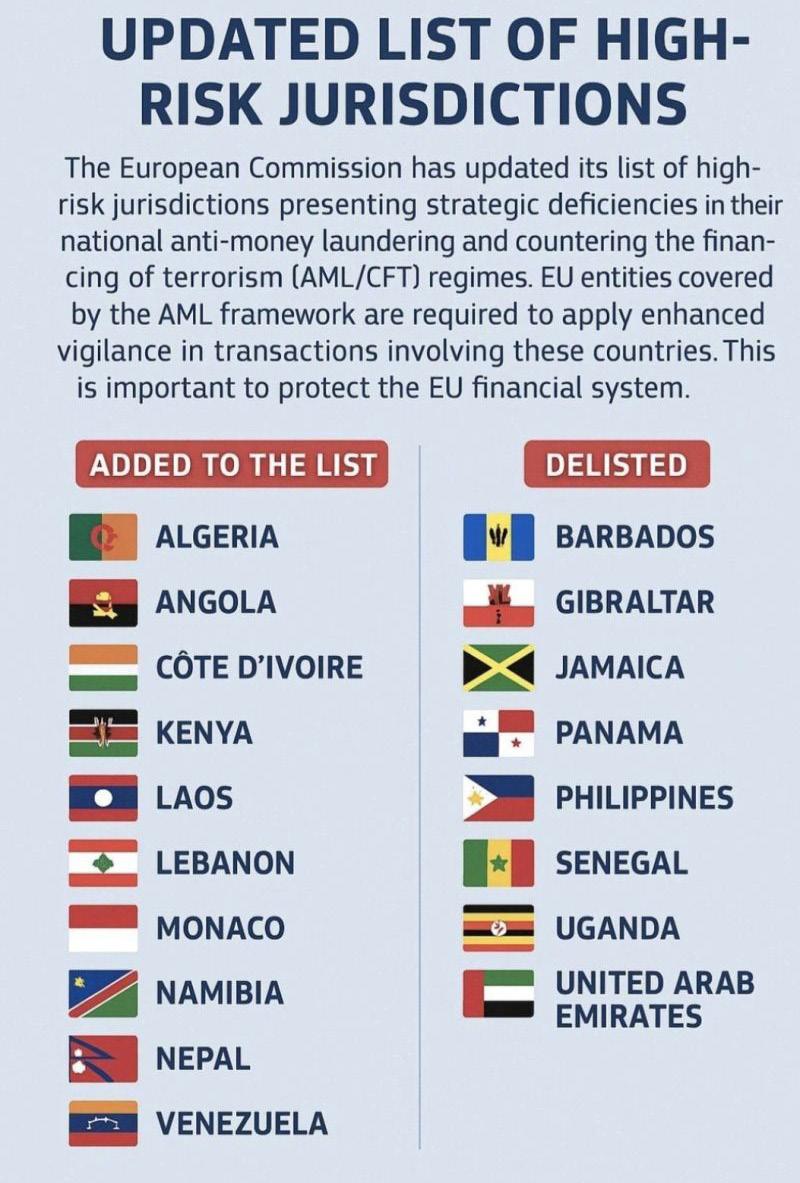
Barbados Prime Minister Mia Mottley is urging Caribbean nations to embrace CARICOM bonds as a new tool for regional development, offering citizens a direct stake in building a stronger, more resilient community. Speaking at the 49th CARICOM Heads of Government Meeting in Montego Bay, St. James, Mottley said the bonds could be offered at competitive rates, appealing to citizens while still remaining below the cost of lending from international capital markets.
The initiative is intended to address the chronic underfunding of the CARICOM Development Fund, which provides support to disadvantaged countries and sectors across the region. However, Mottley acknowledged that even if all member states contributed, the fund would still fall short of what is needed to adequately finance the needs of disadvantaged economies, sectors, and regions— an inherent consequence of a single market and economy.
To overcome this, Mottley called for the leveraging of regional liquidity and the creation of international guarantee mechanisms to empower Caribbean people to finance their own development. She emphasized that the region must move beyond dependency and find creative ways to mobilize its resources.
Highlighting Barbados’ recent innovations, Mottley shared her country’s success with regional debt swaps,
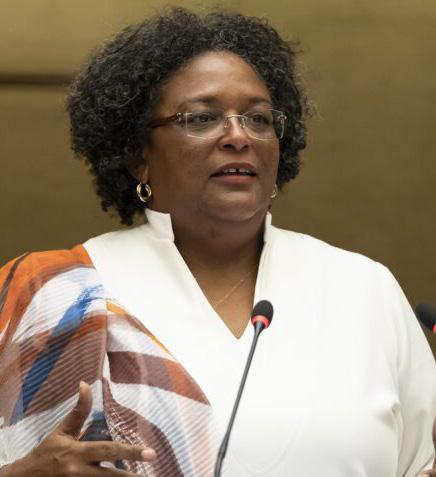
which allow for the financing of major projects without increasing national debt. Over the past six months, Barbados has completed two such swaps: one that direct-
ed funds into marine conservation through the Marine Sustainability Trust, and another that supported climate adaptation by financing a new South Coast sewage treatment plant. Both projects were achieved without adding to the national debt.
She also announced plans for a third debt swap, this time focused on social sector investments, and invited other CARICOM nations to join the effort. Her vision is to see the Caribbean become the first region in the world to establish a regional debt swap directorate.
Mottley further called for the inclusion of natural disaster and pandemic clauses in financial instruments, referencing Barbados’ recent issuance of US$500 million in bonds that allow for a two-year pause in principal and interest payments in the event of a qualifying natural disaster. This innovation, she argued, is critical for building financial resilience in a region highly vulnerable to climate shocks. Citing recent catastrophic flooding in Texas as an example, Mottley warned that no country is immune to the climate crisis. She stressed the urgency of climate adaptation and resilience and challenged regional leaders to act boldly and decisively.
“We must find the boldness to move into action, because without that our region will not be ready for the defense of small states,” she said.
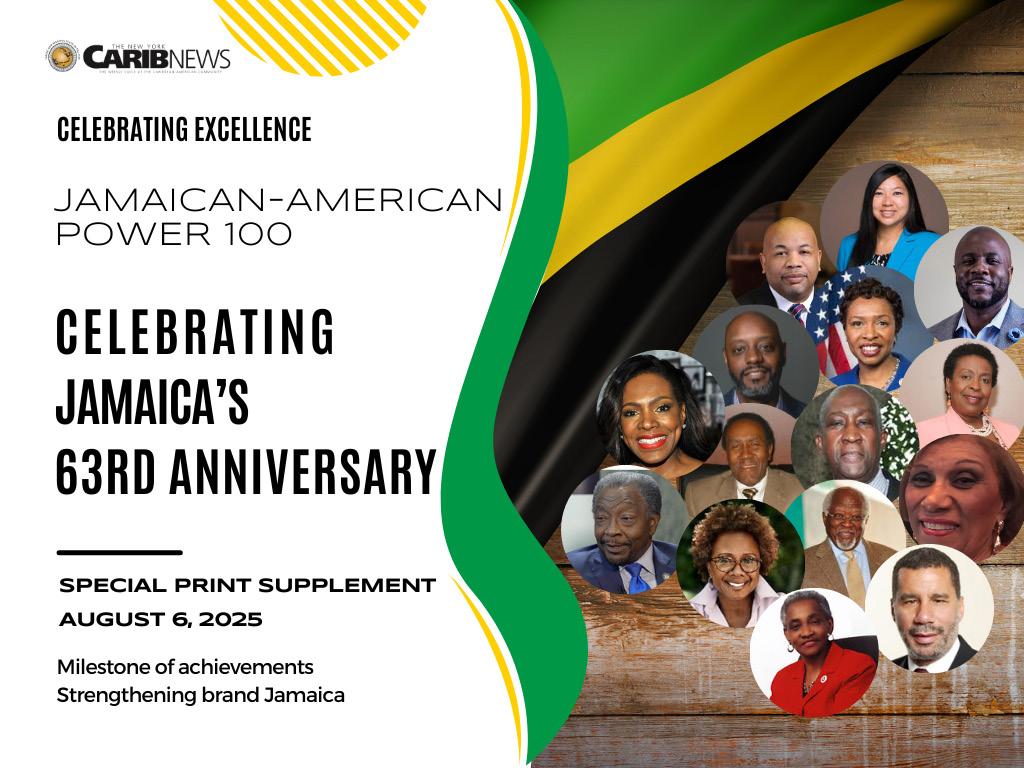
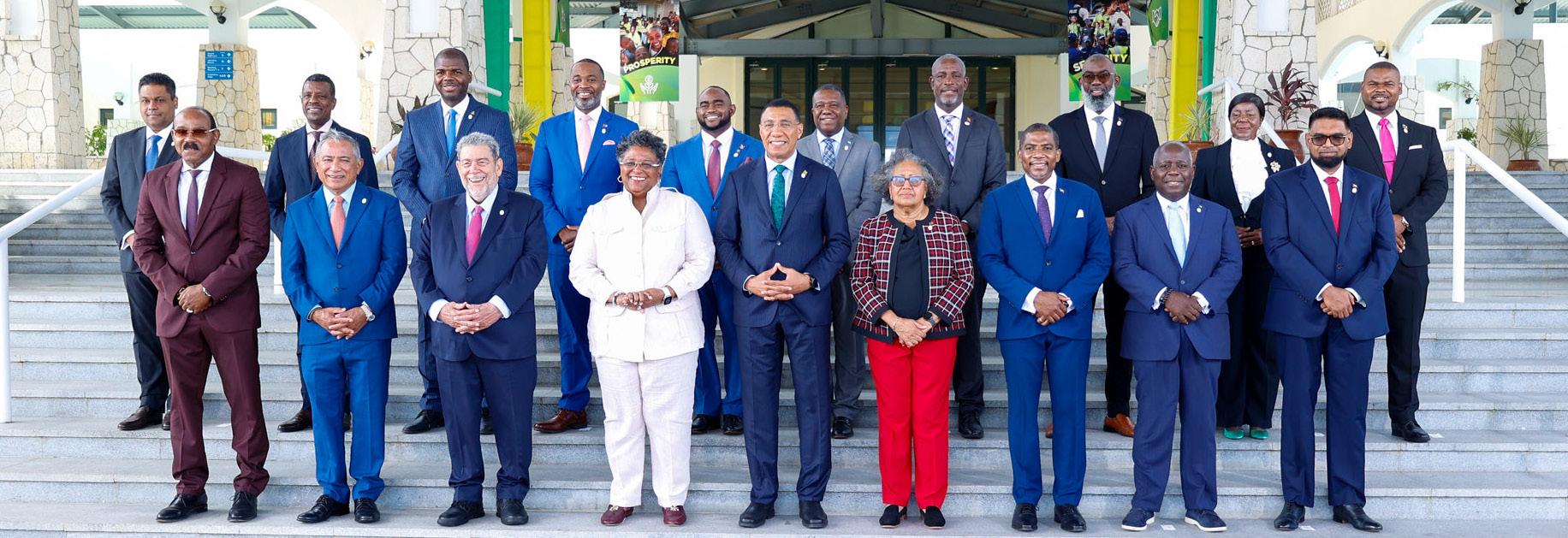
For decades, the Caribbean Community—CARICOM—has stood as a symbol of regional cooperation, a noble experiment in unity among small nations with big dreams. Yet, far too often, it’s been mocked as a “talk shop,” a place where declarations are made, communiqués are issued, and little else follows.
That criticism, while harsh, is not unfounded.
There is undeniable potential in the CARICOM framework: fifteen sovereign states and five associate members, joined by geography, culture, history, and shared struggle. Together, they could be a powerhouse—economic, diplomatic, and moral—in the increasingly chaotic world order.
Instead, we’ve seen summit after summit with little more than polite applause and carefully worded resolutions. Member states squabble over visa waivers and sugar subsidies while the oceans rise and global markets shift beneath our feet. In the face of climate crisis, economic instability, migration challenges, and geopolitical realignment, CARICOM’s inertia is not just disappointing—it’s dangerous. The world is changing, rapidly and sometimes ruthlessly. Small island nations are on the front lines of this shift, from climate change to AI disruption to energy transitions. The Caribbean can no longer afford to sit idly by while larger blocs define the global agenda. It’s time—past time—for
CARICOM to evolve from a forum for discussion into a platform for decisive, collective action.
We’re calling for bold, united, and immediate action. Not next year. Not “after the next Heads of Government Conference.” Now.
CARICOM must rise to meet the moment, or risk becoming irrelevant.
Let’s be clear: disunity has been CARICOM’s Achilles’ heel. National interests too often outweigh regional goals, and political egos get in the way of policy coherence. But unity is our only viable path forward. The world isn’t waiting for us to sort ourselves out.
We need coordinated climate policy—aggressive adaptation strategies, a united front in global climate negotiations, and shared technological investments. Individually, our nations are vulnerable. Together, we could lead the global charge on climate justice, with moral authority no G20 country can match.
We need a real regional energy plan—not competing national grids and scattered solar pilots, but cross-border infrastructure and shared resources to create true energy independence.
We need harmonized trade policy, a single digital economy, and serious movement on freedom of labor—not just on paper, but in practice.
We need a unified voice in global affairs, especially as superpowers scramble for
influence in the Global South. The Caribbean should not be a pawn in anyone’s geopolitical chess game. We are players, not pieces.
It’s no longer enough to say the right things. We’ve done that for 50 years. Now we need action plans with real deadlines and real accountability.
If CARICOM leaders are serious about food security, then let’s build the intra-Caribbean transport systems to move our region’s produce, livestock, and goods. If we’re serious about youth opportunity, then let’s develop shared innovation hubs, e-learning platforms, and regional job pipelines for our graduates. If we’re serious about security, let’s develop joint policing strategies and intelligence-sharing frameworks that go beyond border patrol rhetoric.
Lip service must give way to legislative muscle and financial commitment. We know the problems. The time for studies is over. The time for implementation has arrived.
This isn’t just about us. The world actually needs a fully activated, fully engaged Caribbean presence on the global stage. Our nations are uniquely positioned to offer leadership on some of the most critical issues of our time. Climate resilience? We’ve been innovating out of necessity. Global migration policy? We’ve lived it from all sides. Sustainable tourism? We’re the textbook case.
KARLISA RODNEY
But to claim that space, we need a CARICOM that acts like the serious player it could be—not a glorified regional reception hall.
The Caribbean must be at the table, not just on the menu. That means developing the institutional capacity to show up in international negotiations with real leverage. That means building coalitions with Africa, Latin America, and the Pacific to push for global reforms in finance, climate reparations, and digital equity. That means engaging diaspora communities in strategic ways—not just for remittances, but as partners in nation-building.
This is a call to action—not out of anger, but out of deep belief in what the Caribbean can become. The raw materials of greatness are here: talent, culture, resilience, and shared purpose. What’s missing is the collective will.
CARICOM must stop being a space for empty words and start becoming an engine for progress.
The people of the Caribbean are watching. The world is watching.
History won’t judge us for what we intended to do. It will judge us for what we actually did.
So to the leaders of CARICOM: the time is now. Stand up. Speak together. Move boldly. Because the future is already here—and it won’t wait for us to catch up.
by Ben Jealous
On the Fourth of July, Donald Trump signed his “megabill.” The law boosts the dying fossil fuel industry with tens of billions of taxpayer dollars. It invites an additional 470 million metric tons of greenhouse gas emissions per year by 2035 — that’s the equivalent annual emissions of more than 100 million gas-powered cars. And it aims to stop dead in its tracks the clean energy transition and the green manufacturing jobs boom the Inflation Reduction Act was already starting to create.
Just hours later, a climate-fueled storm settled over and dumped four months worth of rain on Texas Hill Country. The Guadalupe River rose 26 feet within 45 minutes. The resulting flash floods killed at least 120 people — at the time of this writing, although that number will go up — mostly in Kerr County. That death toll includes dozens of young girls attending the Camp Mystic youth camp. This disaster was not a random event. It was a crisis written by the climate crisis and made far worse by the types of policies being pushed by this administration everyday.
Before the absurdly named One Big Beautiful Bill Act landed on Trump’s desk, his administration had already begun gutting America’s frontline defenses against cli-
mate disasters — like the National Oceanic and Atmospheric Administration’s climate labs, the National Weather Service and the Federal Emergency Management Agency.
As questions abound about why parts of the flood-impacted region did not receive adequate warning about the floods, Trump insisted that “nobody expected it” and it was a “once in 100 years” event. In-depth political coverage, sports analysis, entertainment reviews and cultural commentary.
But storms like this, as well as increased flooding from the Guadalupe River, were expected — and predicted. The U.S. Geological Survey — another vital body Trump is trying to eviscerate — issued a report to that effect in 2019. The science is clear: warmer air holds more moisture, intensifying storms and accelerating flood risk. We’re now witnessing the violent proof of these predictions.
UCLA climate scientist Daniel Swain, posted on X, “this kind of record-shattering rain (caused by slow-moving torrential thunderstorms) event is *precisely* that which is increasing the fastest in [a] warming climate.”
As for the “one in 100 years” claim, those once-in-a-century extreme weather events are now happening far more often thanks to the climate crisis. Between just 2015-
2019, one St. Louis suburb had three major floods and at least two of them were considered “1-in-100-year events.”
It is not hard to see how the climate crisis became a political debate. Decades of anti-science propaganda from the coal, oil and gas industries. Politicians bought and paid for by fossil fuel oligarchs. A current administration with a cabinet full of industry shills.
Big Oil alone spent a whopping $445 million through the 2024 election cycle to influence Trump and Congress. A staggering figure to be sure, that does not include donations funneled through dark money groups (likely tens of millions of dollars more — at least). And it still falls short of the $1 billion Trump asked the country’s oil executives to kick in to his campaign — an amount Trump insisted would be a “deal” for the industry because of what he was willing to give them.
But it is high time that our leaders, at every level and of every party, stop kowtowing to a toxic and unnecessary industry built on death, illness and poisoning our communities. It is time they treat this crisis as a struggle for survival — a fight for the future our children deserve.
As the people of Texas grieve and the country grieves with them, their pain is
our warning.
We are at a crossroads: We can double down on denial and let superstorms, heatwaves, droughts, floods and fires determine our fate. Or we can lead — with science, resilience, courage, and a recommitment to our values.
If we harness our outrage and come together to fight like hell for our collective future, we will win. Because when people stand up and demand a safe planet, nothing — not even rising water — can drown the American spirit.
Ben Jealous is executive director of the Sierra Club and a professor of practice at the University of Pennsylvania.

by Stacy M. Brown, Black Press USA Senior National Correspondent
A top Trump administration official is proposing what critics call a thinly veiled form of forced labor, suggesting that millions of low-income Americans on Medicaid should be used to replace undocumented immigrants the government is deporting en masse from U.S. farms. Agriculture Secretary Brooke Rollins laid out the administration’s vision in blunt terms on Tuesday. “There will be no amnesty. The mass deportations continue, but in a strategic way,” Rollins told reporters after meeting with Republican governors. “We move the workforce towards automation and 100% American participation, which, again, with 34 million people—able-bodied adults on Medicaid—we should be able to do that fairly quickly.”
She added, “Ultimately, the answer on this is automation, also some reform within the current governing structure. And then also, when you think about it, there are 34 million able-bodied adults in our Medicaid program. There are plenty of workers in America.” The remarks echo proposals President Donald Trump himself has floated in recent months, including a plan to compel farmers to house and supervise migrant laborers to avoid ICE raids di-
rectly—an arrangement many civil rights experts have warned resembles indentured servitude. Rollins’ suggestion goes further, signaling the administration wants to turn Medicaid enrollment—a health insurance lifeline—into a de facto roster of people to be mobilized for field work.
Health policy experts say this is not only an assault on the safety net but an attack on basic civil rights. Medicaid exists to provide healthcare for people living in poverty, not to support an unpaid or underpaid agricultural workforce. Data show that the policy would hit Black Americans especially hard. According to the Kaiser Family Foundation, Black individuals make up nearly 19% of Medicaid enrollees under 65, despite being about 13% of the total U.S. population. In many states, including Alabama, Georgia, and Mississippi, the share is far higher. Medicaid finances nearly 41% of all births nationwide and covers over 30% of Black Americans overall.
Critics also point out that the policy would primarily target women and children: nearly half of Medicaid enrollees are under 19 years old, and many adults in the program are mothers or caregivers. In
2023, about 47.6% of Medicaid enrollees were adults between 19 and 64, including millions of people with disabilities and chronic illnesses. “This is state-sanctioned exploitation,” said a policy researcher who reviewed Rollins’ comments. “They are literally talking about rounding up the poorest Americans—disproportionately Black and brown—and telling them to replace deported immigrants in the fields. That’s not a jobs program. That’s forced labor.”
Even among the working-age adults enrolled in Medicaid, many are already employed in low-wage jobs that do not offer insurance. Others are caretakers or people with severe health conditions. Federal law does not require Medicaid recipients to accept any form of employment as a condition of coverage. Farmers themselves have warned that the administration’s deportation and labor policies will trigger food shortages and economic chaos. Growers across the country rely on immigrant workers to harvest crops—labor that is already among the most dangerous and poorly paid in the U.S. Some of Trump’s allies have promoted proposals to require farms to lodge and monitor
their remaining migrant workforce, raising alarms about “company town” conditions that legal experts say blur the line between employment and captivity. Rollins, however, was adamant. “This is the direction,” she said. “There are plenty of workers in America.” The White House did not respond to questions about how forcing Medicaid recipients into agricultural work would comply with labor laws, disability rights statutes, or the constitutional ban on involuntary servitude. A civil rights advocate put it more bluntly: “This is not immigration policy. This is an attempt to resurrect slavery in America under a different name.”
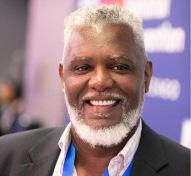


Reverend Karl Baldwin Johnson of the Jamaica Baptist Union (JBU) has made history as the first Caribbean national to be elected president of the Baptist World Alliance (BWA).
Johnson was elected on Wednesday during the BWA’s 23rd Baptist World Congress, currently taking place in Brisbane, Australia, from July 7–12, 2025.
“The Jamaica Baptist Union gives thanks to God that in the election of Rev. Karl B. Johnson as chair of the Baptist World Alliance Global Council, we continue an established pattern of outsized contributions to leadership in the global Baptist family,” said Rev. Dwight Fraser, president of the JBU.
Rev. Johnson, who currently serves as pastor of the historic Phillippo Baptist Church in Spanish Town, Jamaica, brings more than 30 years of ministry experience to the role. He was ordained in September 1992 and previously led the Ulster Spring and
Calvary Circuits of churches. For two decades, he also served as General Secretary of the JBU, a position he held until 2021. “We are extremely proud of our pastor, Rev. Karl B. Johnson, on becoming the first Caribbean national to serve as president of the Baptist World Alliance,” said Deacon Sylvester Tulloch, a pastoral assistant at Phillippo Baptist Church. “Rev. Johnson comes to this office with a long track record of service and exceptional credentials. We are confident that he will serve with distinction. On behalf of the Phillippo Baptist Church family, I congratulate him wholeheartedly.”
The Phillippo Baptist Church noted that Rev. Johnson is deeply moved and humbled by the path God has laid out for him. He expressed heartfelt gratitude to his church community and family for their unwavering support throughout his journey.
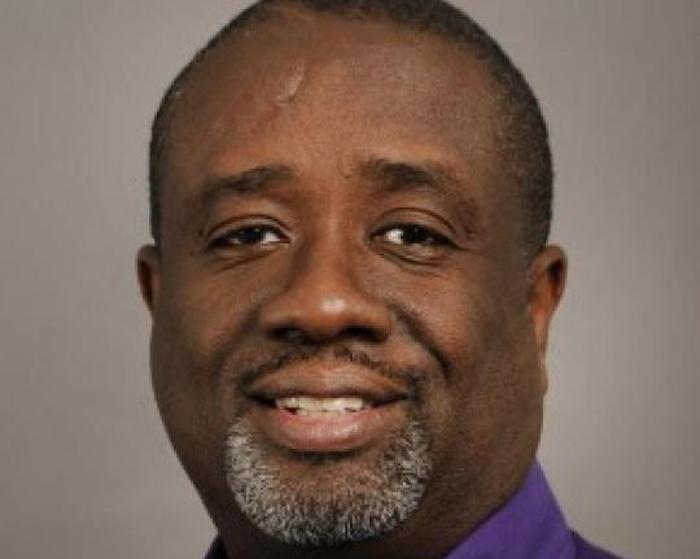

Jessica Hyatt, a 19-year-old Brooklyn native, is making history as the highest-rated African American female chess player and the youngest African-American woman to earn the prestigious National Master title. Her groundbreaking achievements are reshaping the face of American chess and inspiring a new generation of young Black girls to pursue the game. Hyatt’s journey into chess began in the classrooms of New York City through Chess in the Schools, a nonprofit dedicated to teaching chess in underserved communities. What started as a school activity soon evolved into a passion that has propelled her to the top ranks of American youth chess. Her steadily rising rating and numerous wins have already earned her over $40,000 in college scholarships, according to Duchess International Magazine.
As a teenager, she stunned older and more seasoned competitors. In 2019, she claimed victory at the New York State Scholastic Championship. By 2023, Hyatt had solidified her standing with a series of accomplishments, including becoming the KCF All-Girls Nationals Champion and a five-time member of the USA National Youth Team. That same year, she held a draw against top-seeded Liya Kurmangaliyeva at the World Youth Chess Championship, despite being rated over 400 points lower. Hyatt’s ascent gained even more attention when she began defeating grandmasters. In 2021, she defeated Grandmaster Michael Rohde, and in 2022, she toppled prodigy Grandmaster Abhimanyu Mishra—placing her among the very few African-American women to ever defeat a grandmaster.
In 2024, she was ranked the number one 18-year-old female chess player in the United States. She also wowed audiences during a simultaneous exhibition at the Detroit Institute of Arts, where she won every game she played. Just two months later, she became the youngest African-American woman to earn the National Master title, following closely behind Shama Yisrael, who became the first.
But for Jessica, the mission goes far beyond titles and trophies. She is determined to use her success to mentor and uplift other young women of color in the chess world. In a sport where Black women remain significantly underrepresented, Hyatt wants to be the example that shows what’s possible when talent is met with opportunity.
From Brooklyn classrooms to the global stage, Jessica Hyatt is not just breaking barriers—she’s building bridges for the next generation.






Golden Krust – the premier Jamaican fast-casual restaurant group with over 100 locations – opens its first airport location at New York’s John F. Kennedy International Airport today as part of the airport’s massive $19B renovation and expansion program. The new restaurant, located at the baggage claim carousel 7 in Terminal 8 (which services American Airlines, Alaska Airlines, British Airways, and more), will offer all of the Golden Krust classics.
Highlights include Braised Oxtail with succulent, slow-cooked, tender oxtail cooked in a rich gravy; a savory and spicy slow-cooked Jerk Chicken; and a hearty Curried Goat with tender pieces cooked to the bone. Sides include Fried Dumplings, Fried Sweet Plantains, Rice & Peas, Steamed Vegetables, among others. The new John F. Kennedy International Airport location will offer Caribbean classics served with a choice of rice, steamed vegetables, and
fried sweet plantains as well as Golden Krust’s signature Jamaican patties. Available flavors include beef, chicken, jerk chicken, spinach, and more.
“We’re proud to bring a taste of the Caribbean to one of the world’s busiest airports,” said Steven Clarke, Vice President of Marketing at Golden Krust. “Opening in JFK Terminal 8 is more than just a milestone for Golden Krust— it’s a chance to welcome travelers from around the globe with the warmth, heritage, and bold offerings that have defined our brand for over 35 years.”
“Bringing Golden Krust to JFK Terminal 8 has been a labor of love”, says franchisees Conroy and Samantha Champagne. “As someone who’s proudly operated Golden Krust restaurants across Queens for decades, opening in the airport is deeply meaningful—it’s a chance to showcase our Caribbean roots on a global
stage, and to serve everyone from first-time visitors to familiar members of the diaspora with the same warmth and quality they expect from us.
Golden Krust was founded in 1989 by Lowell F. Hawthorne and his siblings, who immigrated to New York from Jamaica in the 1980s. Operating restaurants came naturally to Lowell and his siblings, as their parents, Mavis and Ephraim Hawthorne, founded Hawthorne & Sons Bakery in St. Mary, Jamaica in 1949. Since Golden Krust’s inception, the family-run operation has grown from a single location in the Bronx, New York (which is still operational) to locations across eight states (Connecticut, Florida, Georgia, Maryland, New Jersey, New York, North Carolina, and Texas) and grocery products in 22,000 stores. After over 35 years, the Hawthorne family remains at the helm of the business, and through Golden Krust, has
acted as the de facto stewards of Jamaican and Caribbean heritage in the U.S. Golden Krust is beloved for their signature Jamaican patties, of which they produce more than 50 million patties per year, in addition to popular steam table options on their menu like Jerk Chicken and Oxtail, as well as a full assortment of Jamaican baked goods.
The restaurant will be open 5:30am - 11:30pm, 7 days a week. For more information, visit goldenkrust.com or follow @goldenkrust on Instagram.
The restaurant is currently in soft opening mode, and Golden Krust will host a ribbon-cutting ceremony and grand opening celebration in the upcoming months. For more information, please reach out to goldenkrust@ monacreative.co
With just two weeks remaining before the official start of Antigua Carnival celebrations, travel demand for Antigua and Barbuda is on the rise.
The Antigua and Barbuda Tourism Authority’s Director of Tourism for the Caribbean and Latin America, Charmaine Spencer, said, “From as early as February, we ramped up advertising and on-the-ground activations targeting key audiences across markets, with the goal of keeping Antigua and Barbuda top of mind for the summer carnival season.” Antigua Carnival 2025, which runs from July 25 to August 5, under the theme ‘Itz A Vibe, will deliver twelve days of non-stop vibes and experiences filled with mas, music and culture. This year’s celebration includes major musical milestones, as the destination marks the 80th anniversary of Hell’s Gate Steel Orchestra, 40 years of Burning Flames, and 25 years of Claudette “CP” Peters.
The packed carnival schedule released by the Antigua and Barbuda Festivals Commission, offers an exciting line-up to include: the popular T-Shirt Mas on July 26, Burning Flames’ 40th anniversary concert on July 30, Annual Watchnight Gathering and the Caribbean Melting Pot on July 31, the Panorama Steelband competition on August 2, Party Monarch on August 3, and the traditional J’ouvert morning, Carnival Monday and Carnival Tuesday mas on August 4 and 5 respectively The carnival season draws to an end with Last Lap, that sees carnival goers take one last jump-up through the streets of St. John’s on the night of August 5.
Airlines are responding to the demand for travel to the destination from visitors and diaspora all hoping to enjoy the festivities. American Airlines has added an additional flight from Miami for July 25 - July 28, while Caribbean Airlines is operating a special flight from Toronto to Antigua on July 31 to facilitate travel for Carnival.
Regional carrier LIAT 20 is also offering 25% off airfare to Antigua for travel between July 13 and August 12. The promotion, available when booked b Augyust 4 with the code VIBE25, applies to all LIAT 20-operated
routes including Trinidad, St. Kitts, Dominica, St. Lucia and St. Vincent.
In early July, the Antigua and Barbuda Tourism Authority, alongside LIAT 20, conducted a five-day promotional roadshow in Trinidad and Tobago aimed at inspiring last-minute bookings for Antigua Carnival and the general destination offerings. Trinidad and Tobago is Antigua and Barbuda’s largest Caribbean source market.
The Antigua and Barbuda team included Antigua and Barbuda Tourism Authority Marketing Communications Manager Maria Blackman and Marketing Officer Alfonsina Olmos who was joined by LIAT 20 Marketing Supervisor Tito Thomas. The promotional activities included live media interviews with television and radio stations such as CNC3, TV6, Slam 100.5FM, Hott 93.5 FM, Vibe CT 105.1 FM and others, one-on-one travel agent meetings at Hyatt Regency, and a consumer pop-up at East Gates Mall.
“There was a real buzz in Trinidad. Antigua and Barbuda is a top Caribbean destination for the Trinidad traveller and mall-goers had numerous inquiries for the team. We saw a strong interest in Antigua Carnival, and the destination overall, with persons asking about places to stay, and special offers,” said Blackman. “The campaign with LIAT 20 is providing our Caribbean family and friends even more of an incentive for them to travel for Antigua, be immersed in Antigua Carnival and then spend some time after relaxing on any one of our 365 beaches, for their summer vacation.”
The Antigua and Barbuda Tourism Authority, Antigua and Barbuda Festivals Commission, and the Antigua and Barbuda Airport Authority are gearing up for increased arrivals into the destination within the coming weeks and have begun arrangements for a festive welcome of visitors.
For more information on Antigua Carnival and special travel offers go to: www.visitantiguabarbuda.com , www.instagram.com/antiguafestivalsofficial and www.facebook.com/ AntiguaCarnival

Two Jamaicans have been confirmed dead by Haitian authorities, who said they intercepted a rowboat “heavily laden with drugs,” resulting in the drowning death of the men, the undisclosed death of another and the arrest of a Bahamian.
Confirming the deaths, the counter narcotic unit of the Haitian National Police (HNP) said that “under the leadership of Acting Superintendent Jeir Pierre, the Port-de-Paix police and prosecutor’s office intercepted a row boat heavily laden with drugs…The result: two Jamaicans drowned, one body in the morgue and a
Bahamian in custody.”
The Haitian authorities added that they seized more than 90 kilos of cocaine from the boat and said several other suspicious boats are believed to still be at large.
The Haitians described the operations as “a first in the history of the northwest”.
In the meantime, the Bahamas government said it is awaiting official confirmation regarding the incident but noted that unconfirmed reports of the killings are that the men, while on a speed boat, were shot at from unknown persons, which resulted in two of the males being killed
Since the April 28 general election that brought the United National Congress (UNC) to power, Trinidad and Tobago has recorded 81 murders, pushing the national homicide total for 2025 to 208 as of July 12.
Although the overall figure is down from the 307 murders recorded during the same period in 2024, the persistent bloodshed continues to raise alarm across the nation. Criminologists, national security experts, and newly appointed Minister of Homeland Security Roger Alexander are voicing concern about the scale and intensity of
violence.
Alexander, who has pledged sweeping reform, is urging the public to be patient as the Government begins the complex task of restoring public safety. “We understand the urgency, but this crisis is the result of years of neglect. Real change will take time,” he said.
The first murder reported following the UNC’s election victory was that of 43-year-old Kellon Hutchinson, who was gunned down in San Juan just hours after the polls closed. Police recovered sixteen spent .40 caliber shells and a live 9mm
The United States (US) Ambassador to Guyana, Nicole Theriot, said Wednesday that Washington would be supporting the Guyana Police Force (GPF) in strengthening its capacity for the September 1 general and regional elections.
Theriot told reporters that the North American country was responding to a
“request” from the GPF and that “we’re happy to provide it”.
She said that the United States has “a lot of expertise” in holding contentious but peaceful elections and that Washington would be funding two-thirds of the Organization of American States’ (OAS) election observation mission as well as





working closely with the Carter Center.
“We’re very, very pleased to have that incredible institution here and to be able to support them,” she said, adding that the United Kingdom, European Union and Canadian Chiefs-of-Mission were also backing those efforts.
“We’re playing a role and coordinating
amongst all of the missions as well as the Private Sector Commission (PSC) and other observation missions,” the US diplomat said, adding “We’re trying to ensure that we are all working together so that we’re not redundant and, hopefully, every polling station in the country has international observers.”






The U.S. Supreme Court on Wednesday blocked Florida from enforcing a controversial law that would criminalize the entry of undocumented immigrants into the state.
The decision upholds an earlier ruling by U.S. District Judge Kathleen Williams, who halted the law in April, finding that it interfered with federal immigration authority. A federal appeals court later affirmed her decision. The Supreme Court, in an unsigned order without explanation, agreed to maintain the hold on the law for now.
The law, signed in February by Florida Governor Ron DeSantis, would impose criminal penalties — including prison sentences — on undocumented immigrants who reenter Florida after previously being removed. Critics argued the law unlawfully encroached on federal jurisdiction.
Federal courts have blocked similar laws in at least four other states following lawsuits brought by immigrant rights organizations.
The Supreme Court’s decision was welcomed by the American Civil Liberties
Union (ACLU).
“This ruling affirms what the Constitution demands — that immigration enforcement is a federal matter,” said Bacardi Jackson, executive director of the ACLU of Florida.
“Florida’s attempt to bypass federal authority and weaponize local law enforcement to police immigration status was not only unlawful, but it also put thousands of people at risk of unjust detention, separation, and abuse.”
Governor DeSantis, a Republican and prominent figure in national conservative politics, has championed hardline immigration measures in recent years. His stance aligns with former President Donald Trump, who made mass deportations a key pillar of his presidential campaign.
Just last week, Trump joined DeSantis for a tour of a newly constructed Florida migrant detention facility, nicknamed “Alligator Alcatraz.” During the visit, Trump joked that the alligators surrounding the facility would serve as guards — a comment that drew widespread criticism from immigrant advocacy groups.

The Supreme Court’s decision is a temporary measure, and the case could return to the Court for further review. For now, however, the ruling halts Florida’s attempt
to impose state-level criminal penalties on undocumented migrants, reinforcing the federal government’s primary role in immigration enforcement.

Nursing homes across the United States, already facing chronic staffing shortages, are bracing for further strain as President Donald Trump’s renewed crackdown on immigration threatens one of their most reliable labor pipelines: foreign-born workers.
Facilities that care for older adults and disabled individuals are beginning to feel the impact of Trump’s restrictive immigration
policies, reporting the loss of key employees whose legal protections have been revoked. Even more concerning, industry leaders say, is the longer-term effect—a significant slowdown in the flow of new immigrant workers amid a broader downturn in legal immigration.
“We feel completely beat up right now,” said Deke Cateau, CEO of A.G. Rhodes, which operates three nursing homes in
the Atlanta area. About one-third of the facility’s staff are immigrants from nearly three dozen countries.
Cateau, himself an immigrant from Trinidad and Tobago who moved to the U.S. 25 years ago, said eight of his employees are slated to leave due to the revocation of their Temporary Protected Status (TPS)—a designation that allows individuals from countries facing natural disasters or civil unrest to live and work legally in the U.S.
While TPS recipients make up a small fraction of A.G. Rhodes’ 500-person staff, their absence will be deeply felt. “They will be very difficult, if not impossible, to replace,” Cateau said. “It may be eight today, but who knows what it’s going to be down the road.”
Nationwide, immigrants are a critical part of the healthcare labor force. Nearly one in five civilian workers in the U.S. is foreign born, according to the Bureau of Labor Statistics. In caregiving occupations—such as nursing assistants, home health aides, and personal care aides—immigrants are even more overrepresented, comprising more than 25% of the estimated four million direct care workers, according to PHI, a nonprofit focused on the long-term care workforce.
The demand for such workers is expected to skyrocket as the Baby Boomer genera

tion ages. The Bureau of Labor Statistics projects that home health and personal care aide roles will see the largest growth of any job category, with an estimated 820,000 new positions added by 2032.
Care providers had counted on immigrant labor to fill many of those roles. But Trump’s return to the White House and his administration’s aggressive stance on nearly all forms of immigration—legal and otherwise—has sent a chill through the industry.
“Nursing homes, assisted living centers, and home health agencies were already struggling,” said one industry executive.
“Now we’re facing a perfect storm: rising demand, an aging population, and fewer workers coming in to help.”
The concern among providers is clear: without access to immigrant labor, the quality of elder care in the U.S. could suffer significantly in the years to come.
SUNYDownstate Health Sciences University (Downstate) announced that Brian Keith McNeil, M.D., MBA, FACS, Associate Dean for Clinical Affairs and Vice Chair of the Department of Urology at Downstate, was named among eight esteemed colleagues as a 2025–2026 Health Policy Fellow by the Robert Wood Johnson Foundation (RWJF) and the National Academy of Medicine (NAM). This highly competitive fellowship places distinguished health professionals in Washington, D.C., where they engage in hands-on health-related legislative and regulatory work alongside members of Congress and the executive branch.
The RWJF Health Policy Fellows program is the nation’s most prestigious learning experience at the intersection of health, science, and public policy. Fellows spend three months in an intensive orientation, followed by a subsequent nine-month assignment in either a congressional office or a federal agency. The fellowship prepares forward-thinking leaders to drive systemic healthcare and policy improvements. “Health policy is back in the forefront as our country evaluates the role of government in public health and healthcare,” said Gregg Margolis, director of the RWJF Health Policy Fellows program at NAM. “The 2025-2026 RWJF Fellows represent some of the nation’s leading experts, and we are excited to welcome them to the capital to provide fresh perspec
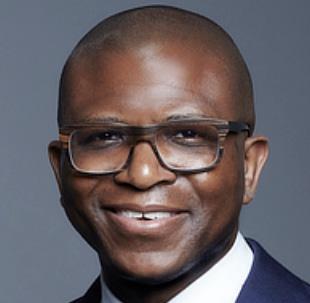
tives and new ideas for some of our most difficult challenges.”
“It is a tremendous honor to be selected as a Robert Wood Johnson Foundation Health Policy Fellow,” said Dr. McNeil. “This fellowship is an excellent opportunity to deepen my understanding of federal policy and bring that insight back to Downstate to serve our community better. I look forward to collaborating with national leaders to shape policies that make quality healthcare more accessible and responsive to all communities.”
In addition to his responsibilities as Associate Dean and Vice Chair, Dr. McNeil is a Senior Staff Urologist and mentor to many.
A board-certified urologist and Fellow of the American College of Surgeons, Dr. McNeil previously directed the ACGME-accredited Urology Residency Program at Downstate, where he
New York Attorney General Letitia James today announced eight pharmaceutical companies will pay approximately $720 million for their role in manufacturing opioid pills that fueled the ongoing nationwide epidemic of opioid addictions. These funds will help deliver critical resources to communities throughout New York and the nation to combat the opioid crisis. New York will receive up to $38.7 million from the eight companies. To date, Attorney General James has secured more than $3 billion to support New York opioid abatement, treatment, and prevention efforts.
“For years, drug companies prioritized profits at the expense of struggling New Yorkers who became trapped in deadly opioid addictions,” said Attorney General James. “While communities throughout our state continue to suffer from the opioid crisis, these resources will help us begin to heal. I will continue to work to hold those responsible for the opioid crisis accountable and ensure that New Yorkers who have been most affected get the support they need.” The eight companies and the total amounts they will pay in funding to address the opioid crisis are:
Mylan (now part of Viatris) will pay $284,447,916 over nine years; Hikma will pay $95,818,293 over one to four years; Amneal will pay $71,751,010 over 10 years; Apotex will pay $63,682,369 in a single year; Indivior will pay $38,022,450 over four years; Sun will pay $30,992,087 in one to four years;
Alvogen will pay $18,680,162 in a single year; and Zydus will pay $14,859,220 in a single year.
Payments will begin as soon as 2026. The eight companies will also provide $14 million in additional funding and Mylan, Hikma, Amneal, and Indivior will provide opioid addiction treatment medications or cash in lieu of this product to participating states valued at approximately $86 million. All companies besides Indivior will be prohibited from promoting or marketing opioids and opioid products and making or selling any product that contains more than 40 mg of oxycodone per pill. They must also put in place a monitoring and reporting system for suspicious orders. Indivior will not manufacture or sell opioid products for the next 10 years, but it will be able to continue marketing and selling medications to treat opioid addiction.
For New York, the settlement negotiations were led by Special Counsel Monica Hanna and Assistant Attorney General Matthew Conrad with the assistance of the Deputy Director of Research and Analytics Gautam Sisodia and Data Scientist Kenneth Morales, under the supervision of First Deputy Attorney General Jennifer Levy. In addition to New York, the settlements were negotiated by the attorneys general of California, Colorado, Illinois, North Carolina, Oregon, Tennessee, Utah, and Virginia.
was a leading advocate for broadening access, expanding opportunity, and fostering excellence in medical education for individuals from all backgrounds
“Dr. McNeil’s selection as an RWJF Health Policy Fellow is a noteworthy honor for him and Downstate,” said Wayne J. Riley, M.D., President of Downstate. “His leadership, commitment to equity, and clinical expertise make him a powerful voice in national health policy. We will continue to support his growth as a leader on the national stage.”
“For more than 50 years, the RWJF Health P olicy Fellows program has placed promising leaders in congressional offices and federal agencies to gain hands-on experience at the nexus of health, science, and policy,” said Osub Ahmed, policy officer at the Robert Wood Johnson Foundation. “We look forward to seeing how the 2025-2026 fellows leverage their training to support RWJF’s vision for a future where health is a right.”
Dr. McNeil’s appointment reflects Downstate’s mission to advance health equity, clinical excellence, and community-based innovation, keeping care close and accessible to Brooklyn’s 2.7 million residents. His work embodies the institution’s values of transformational change and the successful promise of academic medicine as an equalizer for underserved communities. He has made significant contributions to national efforts in public education, urologic health, and
addressing disparities in access to care. Dr. McNeil was named a Presidential Leadership Scholar (PLS) in 2023, among a diverse network of leaders working toward change in the United States and globally while learning about leadership through the lens of former presidents George W. Bush, William J. Clinton, George H.W. Bush, Lyndon B. Johnson, and members of their respective administrations. Dr. McNeil serves on the Board of Directors of the Urology Care Foundation, the official foundation of the American Urological Association. He also serves on the Board of Trustees of the Weeksville Heritage Center, a historic site and cultural center in Brooklyn dedicated to celebrating the heritage of one of America’s first free Black communities.
Dr. McNeil earned a B.S. in Biology from Morehouse College in Atlanta, GA, and his medical degree from the University of Pittsburgh School of Medicine. He completed his urology residency at the Loyola University Medical Center and a clinical fellowship in urologic oncology at the Memorial Sloan Kettering Cancer Center, following research fellowships at the National Institutes of Health/National Cancer Institute and James Buchanan Brady Urological Institute at Johns Hopkins Hospital. He also holds an MBA from NYU’s Stern School of Business.

David Heron’s Off Broadway romantic comedy Love and Marriage and New York City returned to the New York stage in triumph last Sunday June 22 with its Silver Anniversary Presentation at The Jamaica Performing Arts Center (JPAC) in Jamaica Queens, New York.
The play, also produced and directed by Heron, was presented as a one night only staged reading production in celebration of New York City’s annual Caribbean American Heritage Month festivities, held across the city each June.
A large and appreciative audience, including
several stars of stage, film and television, took their seats at JPAC for the first performance of Heron’s play in New York since its Off Broadway run at The Billie Holiday Theatre in 2007, and erupted with a spontaneous five minute standing ovation at the end of the presentation.
Set in 1999, Love and Marriage and New York City tells the story of two Jamaican born couples residing in Manhattan who decide to get married strictly for green card purposes- only to discover that once love enters the equation, no marriage is ever purely about business.
Following its world premiere production in Kingston Jamaica in 1999, the play would go on to make its American debut in South Florida in 2000 before subsequent tours to the United Kingdom in 2002 and 2003, culminating in its eventual Off Broadway run in 2006.
Love and Marriage and New York City cast and crew. From left - former cast member Janel C Scarborough, David Heron, Bill ‘Triple 5’ Vila, Shevrado Oliver, Denise Hunt, Gabrielle C Archer and James Duke Walker. Photo Credit -Tricia Blackman
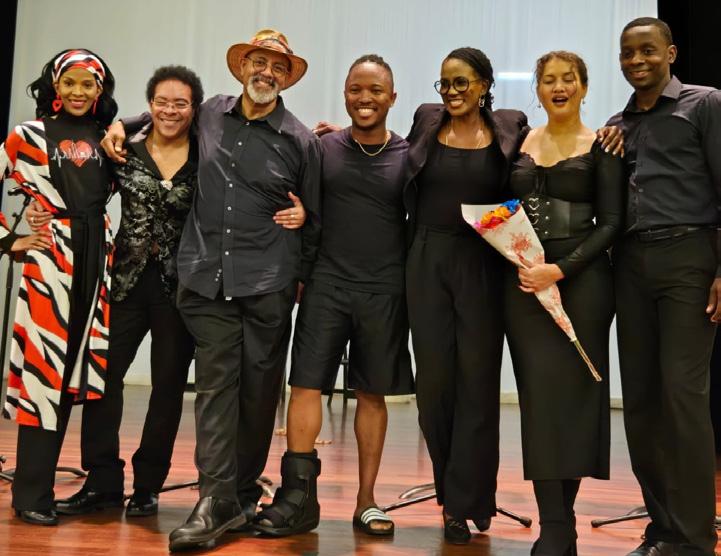
The Caribbean and the global music community are celebrating a monumental milestone as The Mighty Sparrow—Slinger Francisco—turns 90.
Born in Grenada in 1935 and raised in Trinidad from the age of one, Sparrow’s name has become synonymous with calypso. His razor-sharp wit, electrifying stage presence, and masterful lyricism earned him the well-deserved title of Calypso King of the World. Sparrow’s contributions to music, culture, and social commentary have shaped the sound and
spirit of the Caribbean for over seven decades.
Growing up in Port of Spain, Trinidad’s vibrant capital, Sparrow was immersed in the colorful rhythms of calypso—nurtured in tents, on street corners, and during Carnival festivities. He sang in the choir at Newtown Boys’ RC School, where he developed his vocal strength and rhythmic intuition.
As a teenager, he began performing informally at community events and neighborhood gatherings. His stage name, The Mighty Sparrow, was reportedly inspired by his lively energy—

small in frame but bold and commanding on stage, like the feisty bird.
His formal debut came in the early 1950s in Trinidad’s calypso tents. In 1956, his breakout hit “Jean and Dinah” earned him the Calypso King title, setting him on a legendary path. That song, with its clever social commentary, marked the beginning of a career that would redefine Caribbean music.
Over the years, Sparrow released dozens of albums and composed hundreds of songs spanning humor, romance, and political com-
mentary. His repertoire includes iconic hits like Congo Man, Melda, Sparrow Dead, Slave, and Education—each blending entertainment with incisive observation.
Noted historian, academic, and fellow calypsonian Chalkdust (Dr. Hollis Liverpool) once remarked, “No one has documented the Caribbean condition with as much wit, skill, and courage as Sparrow. His calypsoes are historical records. He is, and will always be, the Calypso King of the World.”
Jamaica has welcomed approximately 2.3 million visitors since the start of 2025, generating a record-breaking US$2.4 billion in tourism earnings.
Tourism Minister Edmund Bartlett disclosed the figures while reporting that the industry grew by two percent in the first quarter of the year, contributing to a one percent increase in Jamaica’s overall economic performance during that period.
“After Hurricane Beryl and all the disruptions—travel advisories, political and geopolitical issues—we are back on the growth path, and that’s going to continue,” Bartlett stated, emphasizing the sector’s resilience and renewed momentum despite the challenges faced in
2024.
He was speaking at the opening ceremony of the 11th ‘Christmas in July’ trade show, held Thursday at The Jamaica Pegasus Hotel in New Kingston.
Looking ahead, Bartlett anticipates a significant increase in tourism earnings for the current quarter compared to the same period last year, largely due to the strong rebound from the effects of Hurricane Beryl.
“I’m worried about how big the growth is going to look for this quarter because… you’re comparing a Beryl period to now, a normal period. But that’s how growth goes, because you’re measuring against another period. The good news is that you’re back to where you were in
2023,” he said.
Bartlett also encouraged the 180 exhibitors participating in the trade show—who showcased a wide array of Jamaican-made products—to take advantage of the sector’s rapid growth. He noted that nearly three million stopover arrivals have created a robust market that local entrepreneurs are encouraged to serve.
“A new demand has been created for goods and services that must be supplied by you; and if it is not supplied by you, it is going to have to be imported. If it is imported, then we are going to have what we call leakage. That is to say, the [earnings] that [have] come from tourism will leave by the same plane that brings the visitors or the same ship that brings the cruise
passenger. We want the money to stay here,” he explained.
The two-day ‘Christmas in July’ trade show, which concluded on Friday, offered local producers and creatives the opportunity to showcase their goods and network with potential buyers from the tourism industry, corporate Jamaica, and international organizations.
The event is an initiative of the Tourism Linkages Network, a division of the Tourism Enhancement Fund (TEF), in partnership with various government agencies and private sector stakeholders.
by Lilia Burunciuc, World Bank Country Director for the Caribbean
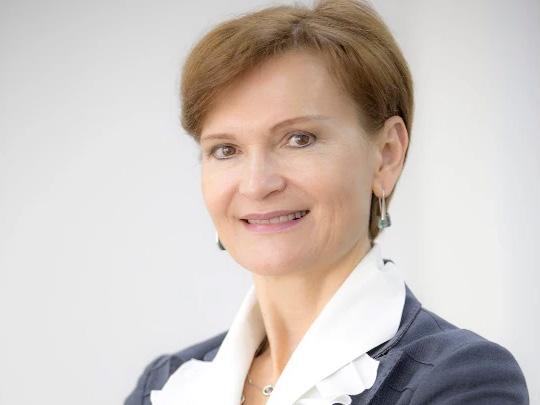
For generations, Caribbean tourism has been defined by its idyllic trinity of sun, sea, and sand—an image that continues to captivate the world. During my four years serving in the region, I’ve had the privilege of experiencing its stunning landscapes and vibrant cultures both professionally and personally. Yet, behind the postcard-perfect scenery lies a tourism model under growing strain.
The COVID-19 pandemic laid bare the region’s overreliance on tourism and exposed the fragility of its economies. It also created a critical opportunity: to reimagine the kind of tourism that not only sustains visitor numbers, but truly benefits Caribbean people, economies, and ecosystems for the long term.
Tourism currently accounts for over 22% of GDP across the Caribbean and supports 2.75 million jobs—many filled by women and youth. Despite these figures, the economic returns are uneven. Cruise tourism now dominates, representing more than half of all arrivals. Yet cruise passengers spend relatively little—ranging from US$37 to US$140 per visit—and many do not disembark. In contrast, overnight visitors spend an average of US$1,600 per trip, while adventure travelers contribute close to US$2,300, not including airfare and accommodations.
This spending gap reflects deeper structural challenges. The sector’s economic footprint remains narrow, with foreign-owned, all-inclusive resorts repatriating profits and importing goods and services. This “leakage” of earnings stifles local enterprise, reduces job creation, and pressures governments into offering costly tax breaks and concessions. Between 2010 and 2013 alone, these incentives cost Caribbean governments as much as 7% of GDP in fore-
gone revenue.
Environmental degradation adds another dimension of urgency. Cruise ships and mega-resorts generate substantial waste, deplete water and energy resources, and damage delicate coastal ecosystems. Mangroves, coral reefs, and beaches—the very assets that attract tourists— are increasingly under threat from unchecked development and climate-related stressors.
To ensure long-term competitiveness, Caribbean nations must pivot from volume to value. Travelers are seeking more immersive, sustainable, and culturally authentic experiences. Destinations that adapt to this shift—and govern tourism responsibly—stand to gain.
A more sustainable path begins with stronger governance. Transparent and predictable investment frameworks can attract ethical tourism investors while enforcing environmental and community standards. Environmental and visitor fees should reflect the true cost of maintaining tourism infrastructure and protecting ecosystems—and those revenues must be reinvested directly into communities and conservation.
Equally vital is ensuring tourism benefits more people. Local farmers, artisans, and entrepreneurs should be integrated into the tourism value chain. Achieving this requires better access to finance, skills training, and coordination between public and private actors. Encouragingly, countries like Saint Lucia are leading the way. Its Tourism Enhancement Fund channels voluntary visitor contributions into local sustainability initiatives—an approach that could be replicated and scaled region-wide. There is also vast untapped potential in non-traditional tourism. Adventure tourism already accounts for over 30% of global leisure travel and generates more than US$680 billion annually. The Caribbean—with its rainforests, rivers, reefs, and ridges—is a natural fit. Dominica’s Waitukubuli National Trail, for instance, offers a glimpse of how the region can position itself as a premier nature-based destination. But scaling such efforts will require targeted investment, marketing, and collaboration. Critically, these reforms cannot happen in isolation. Fragmented competition among Caribbean states often leads to weakened standards and lost opportunities. Regional coopera-
tion—on tax policies, investment incentives, destination branding, and environmental safeguards—can help the Caribbean negotiate better deals and build a more resilient tourism ecosystem.
The ingredients for transformation already exist: world-class natural beauty, rich cultural heritage, and a deepening spirit of innovation. What’s needed now is bold leadership and policy vision. The future of Caribbean tourism must be rooted not only in what attracts visitors, but in what uplifts local communities and protects the environment for generations to come.


The journey to Japan is intensifying for athletes around the world, with just two months to go to the World Athletics Championships Tokyo 25.
While many of the sport’s stars will be looking to secure their spots for the global showpiece when they compete at their national championships next month, here we highlight some of the athletes who could light up the Japan National Stadium from 13-21 September.
Ethiopia’s Sembo Almayew made her major international debut as a 17-year-old at the World Athletics Championships in Oregon in 2022. Since then, the now 20-year-old steeplechase specialist has become a world U20 champion and an Olympic finalist, and those achievements contributed to her being named Women’s Rising Star at the World Athletics Awards 2024 in Monaco in December. She dipped under nine minutes for the first time in Eugene earlier this month, that 8:59.90 performance placing her 15th on the
world all-time list. She has also secured two third-place finishes in the Wanda Diamond League this season, in Doha and Paris. As well as being a double Olympic champion in the 5000m and 10,000m, Kenya’s Beatrice Chebet is a world record-holder on both the roads and on the track. She set a world 10,000m record in Eugene in May last year and went on to set her second world 5km record in Barcelona in December and a world 5000m record in Eugene earlier this month. After claiming world 5000m silver in Oregon and bronze in Budapest, the 25-year-old will be looking to complete the medal set with at least one gold in Tokyo.
Neeraj Chopra likes to make history on the global stage. At the Tokyo Games, he became the first Indian athlete to gain an Olympic gold in athletics when he won the javelin. Then, in Budapest, he became the first athlete from his nation to strike gold in any event at the World Athletics Championships as well as the first Asian athlete to win gold in the men’s javelin. The 27-year-old has already improved his national record to 90.23m this season, surpassing 90 metres for the first time during the Diamond League meeting in Doha.
Brazil’s Alison Dos Santos is the third-fastest 400m hurdler in history. With his South American record of 46.29, the 25-year-old sits behind only world record-holder Karsten Warholm and Rai Benjamin on the world all-time list. Dos Santos beat them both to the 2022 world title in Oregon, scene of that 46.29 area record – becoming the first South American to win a medal in the men’s 400m hurdles at the World Championships. He currently sits second on the season top list with the 46.65 he clocked to win at the Eugene Diamond League.

Swedish pole vault superstar Mondo Duplantis has broken the world pole vault record 12 times during his career so far. His first world record of 6.17m was set in Torun in 2020 and he has since improved it to 6.28m – that most recent record achieved at his home Diamond League meeting in Stockholm. The 25-year-old has multiple global titles to go with his records – world titles claimed in 2022 and 2023 as well as Olympic gold medals gained in Tokyo and Paris, and three world indoor honours from 2022, 2024 and 2025.
Jamaican sprint star Shelly-Ann Fraser-Pryce will want to put on a show in what she has said will be her final World Championships before retirement. The 10-time World Championships gold medallist made her senior international debut at the 2007 World Championships in Osaka and has described going back to Japan as “a full circle moment”.
The 38-year-old has a total of 16 World Championships medals to her name as well as one world indoor title and eight Olympic medals. She secured her spot for Tokyo by finishing third in the 100m at the Jamaican Championships last month.
Italy’s Mattia Furlani has rapidly risen through the ranks, following his European U18 title wins in the high jump and long jump in 2022 with European U20 long jump gold in 2023 and senior European silver in 2024. On the global stage, the 20-year-old is already an Olympic bronze medallist and a two-time world indoor medallist – most recently soaring to world indoor gold in Nanjing. His achievements in 2024 led to him being named Men’s Rising Star at the World Athletics Awards and so far in 2025 he has leapt 8.37m – putting his second on the year’s top list.
Prodigious Australian sprinter Gout Gout secured his first win in a senior international race in Ostrava last month and will want to maintain the momentum as he works towards Tokyo. The now 17-year-old clocked 20.04 in December to break the long-standing Oceanian 200m record and improve Usain Bolt’s world age-16 best. He improved to 20.02 in Ostrava and also has a wind-assisted 19.84 (2.2m/s) to his name, achieved when winning the Australian title in April. His CV already includes a major medal, as he secured 200m silver at the World U20 Championships in Lima last year.
Haruka Kitaguchi will be one of the home favourites going for gold inside the Japan National Stadium in September. After clinching javelin bronze at the 2022 World Championships in Oregon, the now 27-yearold threw 66.73m to get gold the following year in Budapest – a mark which remains the third-best winning performance of her career behind the 67.38m national record she set in Brussels in 2023. She went on to win Olympic gold in Paris and has a best of 64.63m so far this season – that throw getting her the win at the Diamond League meeting in Oslo.
South Africa’s Prudence Sekgodiso stormed into the spotlight at the World Indoor Championships in Nanjing in March, winning the 800m title with a national short track record of 1:58.40. The 23-year-old picked up from where she left off during the outdoor season, improving her PB to 1:57.16 in Ostrava in June and matching that mark to finish runner-up at the Diamond League meeting in Eugene. The Olympic finalist also finished second in Rabat and third in Stockholm and sits second on this season’s top list. (World Athletics)
